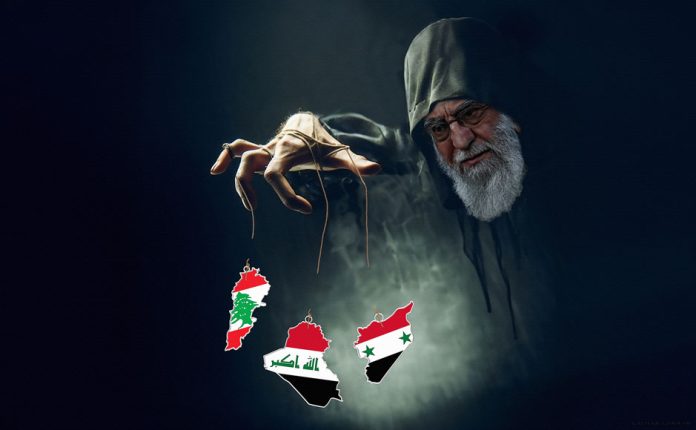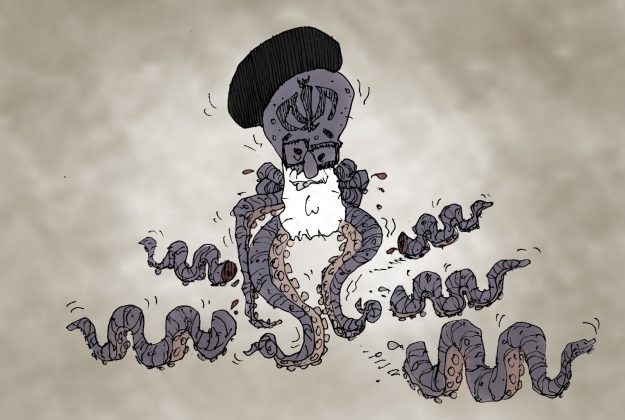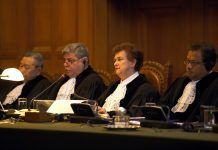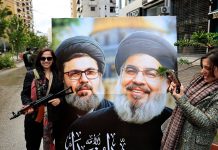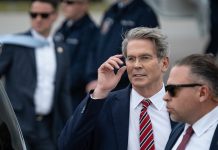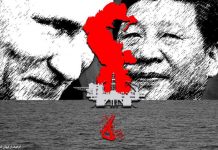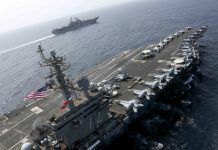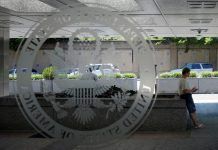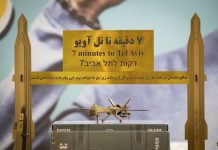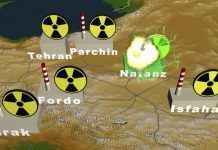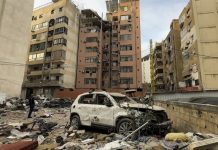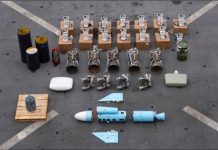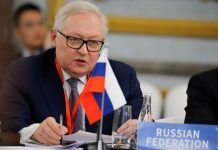By Ahmad Rafat
The Islamic Republic of Iran is facing significant losses as a Middle Eastern power, not only in terms of its proxy armed groups but also in countries that were previously part of the Axis of Resistance.
Iran has now lost control over three areas where it once had considerable influence at the governmental level: Gaza, Syria, and Lebanon, and is encountering serious challenges in Iraq and Yemen.
After the war in Gaza and Israel’s defeat of the Hamas-led government, and the fall of Bashar al-Assad’s regime in Syria, Lebanon has also shifted away from Iran’s sphere of influence.
With the election of a new president and prime minister, Lebanon is moving toward greater stability.
The election of Joseph Khalil Aoun, Commander of the Lebanese Armed Forces, as president and the appointment of Nawaf Salam, President of the International Court of Justice in The Hague, as prime minister signal the end of Iran’s dominance in Lebanon, a country once dubbed the “Bride of the Middle East.”
Hezbollah, realizing that its preferred candidate could not secure enough parliamentary votes, ultimately accepted Aoun’s election after a meeting with Amos Hochstein, the United States special envoy to Lebanon.
During the meeting, Hezbollah’s representatives reportedly asked Hochstein to suggest three presidential candidates for their approval, at which point Hochstein repeatedly recommended Aoun as a possibility.
France and Saudi Arabia, two other influential foreign powers in Lebanon, also backed Aoun’s candidacy.
The West Must Not ‘Bank on the Iranian Regime,’ Warns Renowned Journalist Amir Taheri
By not opposing Aoun’s election, Hezbollah believed it could play a key role in selecting the prime minister responsible for forming the government under the president.
Yet there again, Hezbollah’s candidate failed to win, and the group had to accept Salam’s appointment as prime minister.
In response, Muhammad Raad, leader of Hezbollah’s political wing in the Lebanese Parliament, said: “We held out our hands during the presidential election, but instead of shaking them, they cut them off.”
“Any government that undermines Lebanon’s coexistence is doomed to failure,” Raad added.
It is beyond question that Hezbollah and its supporters in Tehran have been experiencing setbacks in recent times.
Many view Raad’s remarks as a threat to Lebanon’s stability and security, although it seems unlikely that Hezbollah will maintain the same level of influence over Lebanon’s political landscape, particularly after its defeat in the recent war with Israel.
Even Hezbollah’s Christian allies, including Gebran Bassil, leader of the Free Patriotic Movement, have distanced themselves from the Iran-backed group during the elections, leaving it to fend for itself.
Establishing a government led by Salam — who comes from a well-known family that has long been influential in Lebanon’s history, even before independence — will significantly constrain Hezbollah and the Islamic Republic while creating an opportunity for Saudi Arabia to resume its former role.
This shift is significant as Lebanon, ravaged by the recent war, urgently requires foreign investment to rebuild its collapsing economy.
After Lebanon’s elections, French President Emmanuel Macron’s visit to Beirut on Jan. 17 marks another significant turning point for the country. France, the U.S., and Saudi Arabia have been instrumental in driving change.
Israeli Military Says Commandos Raided Missile Plant in Syria in September
In coordination with the U.S., France has played a key role in overseeing the agreement that ended the Israel-Lebanon war. This agreement could help prevent further Israeli conflict with Lebanon, provided the new government, as promised by the newly inaugurated president, can disarm Hezbollah.
However, achieving this goal seems unlikely in the near term. While Hezbollah is unlikely to disarm anytime soon, it must adjust to the changing political landscape after its presidential and prime ministerial elections setbacks.
Tehran must also accept that its era of dominance in Lebanon has come to an end.
The Islamic Republic probably did not anticipate that Hamas’s Oct. 7, 2023 attack on Israel would lead to the collapse of more than 40 years of its political and military investments in the region.
Today, nearly all of the Islamic Republic’s security, military, political, and religious projects have disintegrated. With its dwindling financial resources, increasing international isolation, and diminished legitimacy, the prospect of reviving the empire once envisioned by Ruhollah Khomeini, the founder of the Islamic Republic, appears increasingly unlikely.
In Iraq, where the Islamic Republic had effectively controlled the Shia political and military forces following the fall of Saddam Hussein, the situation is also changing.
The current Iraqi government in Baghdad, which came to power with Tehran’s backing, is distancing itself from the Islamic Republic.
During a recent visit to London, Iraqi Prime Minister Mohammed Shia al-Sudani signed a $15 billion economic agreement, more than 10 times the value of Iraq’s total trade with Britain in 2024.
Iraq, UK Agree on Trade Package Worth up to $15 Billion, Defence Deal
World Bank’s Banga Says Wider War in Mideast Would Impact Global Economy
Britain had conditioned the expansion of economic cooperation with Iraq on the reduction of Iranian influence in that country. Some of these investments, including a project linking Iraq’s electricity grid to Saudi Arabia’s network, aim to counter the Islamic Republic’s influence.
Currently, Iran supplies a significant portion of Iraq’s electricity. The agreement also includes refurbishing and expanding the Qayyarah Airfield West in northern Iraq, signaling the reduction of Iran’s military presence.
Two weeks ago, U.S. President-elect Donald Trump, ahead of his inauguration on Jan. 20, reportedly sent a direct message to Iraqi Prime Minister al-Sudani, urging him to take control of the Iran-backed militia groups operating under the Popular Mobilization Forces (PMF).
Trump warned that failure to do so would result in the incoming U.S. administration imposing sanctions on Iraq’s oil sector and economy. Additionally, Trump called on the Iraqi government to prevent Iranian financial operations aimed at bypassing sanctions through Iraqi financial institutions.
The issue of disbanding the PMF, handing over their weapons to the government, and integrating these militias into the Iraqi armed forces has been widely debated.
Following Trump’s warning, al-Sudani’s visit to Tehran and his meeting with Iran’s Supreme Leader Ali Khamenei, according to Iraqi sources, was related to this issue. The Iraqi prime minister sought Khamenei’s approval and cooperation on the matter.
Before this visit, certain factions within the PMF, including the influential Harakat Hezbollah al-Nujaba (the Nujaba Movement or HHN, formally the 12th Brigade), had agreed to relinquish their weapons and integrate into the Iraqi armed forces.
However, after this visit and Khamenei’s opposition, they reversed their decision.
During their Jan. 8 meeting, Khamenei reportedly told Prime Minister al-Sudani: “The U.S. seeks to dismantle the PMF, one of Iraq’s key power structures, to expand its presence and influence in the country. It is essential to preserve and strengthen it.”
This shift raises questions about how the Iraqi government, which has managed to remain neutral in the proxy conflict between the Islamic Republic and the West — particularly the U.S. — will continue to navigate this delicate situation.
Iraqi Foreign Minister Fuad Hussein, who accompanied Prime Minister al-Sudani on his recent trip to London, said: “Just one or two years ago, discussions about disarming the PMF militias seemed unimaginable. Today, however, these discussions are taking place, and we can engage with the leaders of these groups on the matter.”
The current Iraqi government faces pressure not only from Western countries but also from a significant portion of Iraq’s population, particularly younger Shiites in Baghdad and southern cities. These individuals have been calling for liberation from the Islamic Republic of Iran’s influence for several years.
Protests began in October 2019, peaked in 2021, and persist today in various forms. During this period, demonstrators set fire to the Islamic Republic’s consulates in Shiite-majority cities such as Karbala and Najaf.
Initially sparked by issues of corruption, unemployment, and economic hardship, the protests evolved into widespread opposition to Iran’s interference in Iraq.
Iraqi protesters view the PMF as an extension of Iran’s efforts to weaken Iraq’s military forces and establish an institution like Iran’s Islamic Revolutionary Guard Corps (IRGC). This, they argue, is part of a broader plan to monopolize Iraq’s politics and economy, mirroring Iran’s tactics, and to violently suppress any dissent.
The Islamic Republic faces a significant setback, as it is not only forced to abandon Syria following the fall of Assad and relinquish the $30 billion it invested there but it will also be excluded from any future involvement in the country, even on a secondary level.
Iran’s absence was further underscored by its exclusion from the conference held by Saudi Arabia in Riyadh on Jan. 12, which saw foreign ministers from 17 countries in attendance.
This omission sends a stark message: Tehran is no longer part of the Syrian equation.
While Russia, another Assad ally, was also absent from the Riyadh summit, experts suggest that its exclusion from the current Syrian process may be temporary. Given its permanent membership in the United Nations Security Council, Russia is likely to play a role in Syria’s future reconstruction.

